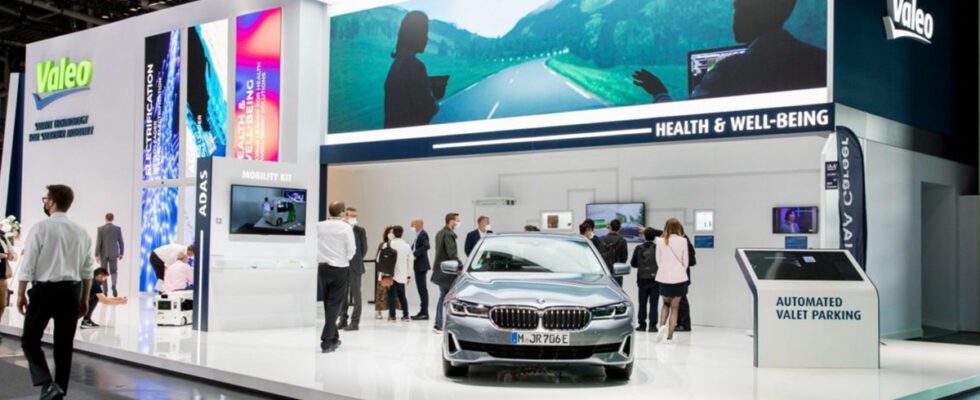The autonomous vehicle is less popular, especially with investors. For the Lyonnais Navya, this is also bad news. Manufacturers are also skeptical, outside of shared mobility.
But designing fully autonomous vehicles (levels 4 and 5) is not the only option for manufacturers. Certain specific operations can claim this status, including parking.
An automated valet on parking and private land
It is precisely in this area of driving that BMW and Valeo have decided to join forces once again. Already partners on advanced driver assistance systems, in particular, the two manufacturers are formalizing an additional strategic collaboration.
The signature dates back to January. It focuses on the design of “fully automated” parking technologies. This automation can go up to level 4 of autonomy, specify the two allies.
As mentioned, it means a “conduct and [un] fully automated parking lots, without any intervention on the part of the driver”, but nevertheless in predefined areas, such as car parks, for liability reasons.
Moreover, Valeo and BMW make it known that it is a question of jointly developing “high-end and innovative parking functionalities, usable both on private land and in car parks”.
The ability of the vehicle to park completely alone, that is to say in level 4 autonomy, is one of the axes of development, but it is not the only one. The automated valet parking system (Automated Valet Parking, or AVP) will be supplemented by other functions intended to assist the driver during manoeuvres.
A partnership on AVP types 1 and 2
To design these systems, BMW and Valeo intend to bring together “more than 100 research and development experts”. These will collaborate around BMW’s automated parking software stack – launched in 2021 with the iX model.
“The next-generation stack will be further enhanced to accommodate a powerful computing platform, which will run the algorithms developed through the partnership,” says Valeo.
The equipment manufacturer will in particular bring its skills in computer vision. This “cooperation will take advantage of our know-how and our technologies, such as advanced computer vision algorithms based on AI”, says Marc Vrecko, director of Valeo’s comfort and driving assistance systems division.
Finally, it should be noted that the partnership encompasses AVP type 1 and 2 solutions. A draft ISO standard distinguishes two categories of automated valet parking service.
The first covers vehicles (equipped with the technologies necessary for autonomy). Type 2 refers to infrastructure. This is for example a parking lot. Thanks in particular to sensors and an AVP management system, it is an infrastructure, independent of the car, which ensures its control.
In addition to the technologies intended to equip cars, BMW and Valeo are also teaming up on infrastructure. The objective: to design a range of services, such as automated parking and charging, in public places and car parks.
